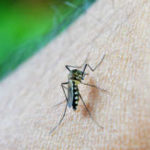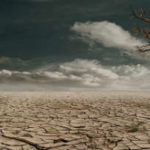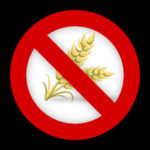Managing Seasonal Allergies: Tips for a Sneezeless Summer
Summer is a season many of us look forward to, with its promise of warm weather, outdoor activities, and blooming nature. However, for millions of people, summer also heralds the arrival of seasonal allergies, leading to sneezing, itchy eyes, and other uncomfortable symptoms. Managing these allergies can be challenging, but with the right strategies, you can enjoy a sneeze-free summer. Here are some effective tips to help you manage your seasonal allergies and make the most of the sunny months.
Understand Your Allergies
The first step in managing seasonal allergies is understanding what triggers them. Common summer allergens include:
- Pollen: Released by grasses, weeds, and trees, pollen is a major cause of seasonal allergies.
- Mold spores: Mold thrives in warm, damp environments and can be a significant allergen during the summer.
- Dust mites: These tiny creatures flourish in warm, humid conditions and can exacerbate allergies.
By identifying your specific triggers, you can take targeted steps to reduce your exposure and manage your symptoms more effectively.
Monitor Pollen Counts
Keeping an eye on pollen counts can help you plan your outdoor activities more strategically. Many weather websites and apps provide daily pollen forecasts, which can alert you to days when pollen levels are particularly high. On these days, consider staying indoors, especially during peak pollen times (typically early morning and late afternoon).
Create an Allergy-Proof Home
Creating a safe haven indoors is crucial for managing seasonal allergies. Here are some tips to allergy-proof your home:
- Keep windows closed: While it may be tempting to let fresh air in, keeping windows shut can prevent pollen from entering your home. Use air conditioning to stay cool instead.
- Use air purifiers: High-efficiency particulate air (HEPA) filters can trap allergens and improve indoor air quality.
- Clean regularly: Dust and vacuum your home frequently to remove allergens. Consider using a vacuum cleaner with a HEPA filter.
- Control humidity: Use a dehumidifier to keep indoor humidity levels below 50%, which can help reduce mold and dust mites.
Maintain Personal Hygiene
Personal hygiene plays a significant role in managing allergies. After spending time outdoors, make sure to:
- Shower and change clothes: This helps remove pollen from your skin and hair, preventing it from spreading indoors.
- Wash your face: Rinsing your face can reduce the amount of pollen you might inhale.
- Keep pets clean: Pets can bring pollen into your home on their fur. Regularly bathing and grooming them can minimize this.
Use Over-the-Counter Medications
Several over-the-counter medications can help manage allergy symptoms:
- Antihistamines: These can relieve sneezing, itching, and runny nose. Non-drowsy options are available for daytime use.
- Nasal corticosteroids: These sprays reduce inflammation in the nasal passages, helping to alleviate congestion and other symptoms.
- Decongestants: These can provide temporary relief from nasal congestion but should not be used for extended periods.
Always consult with a healthcare professional before starting any new medication to ensure it’s appropriate for your specific needs.
Explore Natural Remedies
In addition to conventional treatments, some natural remedies can help alleviate allergy symptoms:
- Saline nasal rinses: Using a saline solution to rinse your nasal passages can help clear out allergens and reduce congestion.
- Butterbur: This herbal supplement has shown promise in relieving allergy symptoms.
- Quercetin: Found in foods like apples, onions, and berries, quercetin is a natural antihistamine that may help reduce symptoms.
- Local honey: Some people find that consuming local honey helps build immunity to local pollen, although scientific evidence is limited.
Stay Hydrated and Eat Well
Good nutrition and hydration are essential for overall health and can help your body manage allergy symptoms more effectively. Drinking plenty of water can thin mucus and help your body flush out allergens. Eating a balanced diet rich in fruits, vegetables, and omega-3 fatty acids can also support your immune system.
Seek Professional Help
If your allergies are severe or not adequately managed with over-the-counter treatments, it may be time to see a specialist. An allergist can perform tests to identify your specific allergens and develop a personalized treatment plan. Options may include prescription medications, allergy shots (immunotherapy), or other interventions.
Plan Outdoor Activities Wisely
Enjoying the outdoors is still possible with seasonal allergies. Here are some tips to minimize exposure to allergens:
- Choose the right time: Pollen counts are typically lower in the late afternoon and after rain showers.
- Wear protective gear: Sunglasses and a hat can help keep pollen out of your eyes and off your hair.
- Create a barrier: Applying a small amount of petroleum jelly around your nostrils can help trap pollen before you inhale it.
Stay Informed and Prepared
Staying informed about allergy trends and having a plan in place can make a significant difference in managing your symptoms. Keep an allergy diary to track your symptoms and identify patterns. This information can be invaluable when discussing your condition with a healthcare professional.
Conclusion
Seasonal allergies can be a nuisance, but with the right strategies, you can manage your symptoms and enjoy a sneeze-free summer. By understanding your triggers, monitoring pollen counts, maintaining a clean environment, using appropriate medications, exploring natural remedies, and seeking professional help when needed, you can minimize the impact of allergies on your life. Stay proactive, and don’t let allergies hold you back from making the most of the sunny season.







